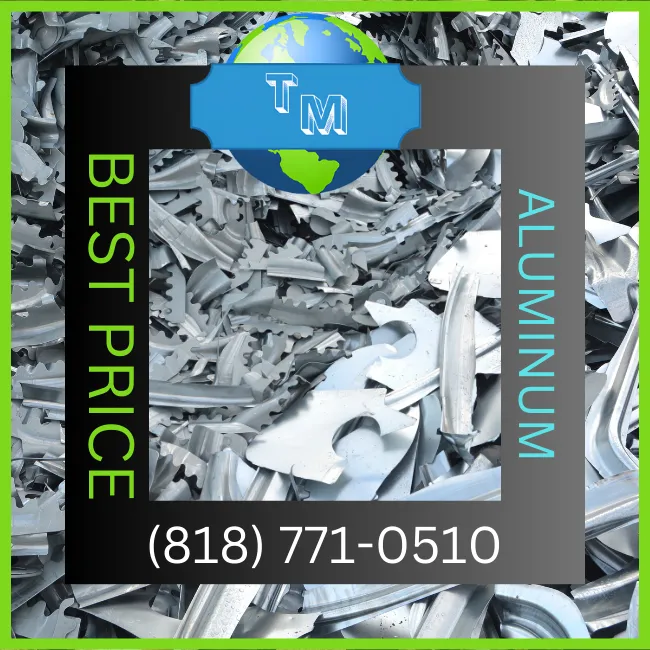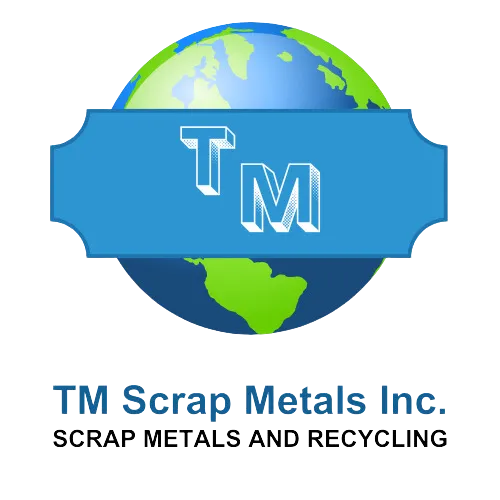Sponsored





Electric Motor Recycling in Sun Valley
Recycle Used Motors Locally For Cash And Environmental Impact
Have old or damaged electric motors in Sun Valley? Local recyclers are ready to buy and process electric motors from appliances, HVAC units, and industrial equipment. These trusted professionals offer fair pricing, quick service, and environmentally responsible practices. Browse top-rated Sun Valley electric motor recycling centers and start recycling today!
Electric Motor Recycling in Sun Valley: Why Hire a Professional Electric Motor Recycling Service
Powering Sustainability with Expert Electric Motor Recycling
The Importance of Electric Motor Recycling in Sun Valley
Electric motor recycling in Sun Valley is essential for managing industrial, commercial, and residential waste effectively. Electric motors are found in everything from household appliances and HVAC units to industrial machinery. These motors contain valuable metals like copper and aluminum, as well as recyclable steel components.
As electric motors reach the end of their life cycle, professional recycling services play a crucial role in safely dismantling and recovering useful materials while properly disposing of non-recyclable components. This reduces environmental impact and supports the circular economy.
Why Hire a Professional Electric Motor Recycling Service
Professional electric motor recycling services in Sun Valley ensure the safe, efficient, and environmentally compliant processing of motor units. These services use specialized tools to extract metals, identify reusable parts, and ensure hazardous materials are managed correctly.
Handling electric motors without proper training can be dangerous due to their weight, wiring, and internal components. Professional recyclers mitigate these risks with the right knowledge and equipment, ensuring safe dismantling and processing.
Economically, these experts offer fair compensation for recyclable motor components. They understand market pricing and provide accurate valuations based on material recovery, helping businesses and individuals maximize their returns.
Choosing the Right Electric Motor Recycling Partner in Sun Valley
Selecting a professional electric motor recycling service in Sun Valley involves evaluating experience, compliance, and service quality. Look for certified providers who demonstrate transparency, responsiveness, and eco-friendly practices.
Local recyclers have a strong understanding of regional recycling requirements and often support citywide sustainability initiatives. Their proximity also allows for faster pick-up and service response times.
In summary, hiring a professional electric motor recycling service is not only a smart economic choice—it’s also a responsible step toward environmental sustainability. It helps ensure valuable materials are recovered, reused, and reintegrated into the manufacturing cycle.
TM Scrap Metals, Inc
Recycling Center

Google: 4.8 stars
Ferrous Metals Recycling, Non-Ferrous Metals Recycling
(818) 771-0510
11092 Tuxford St, Sun Valley, CA 91352
Website: www.tmscrapmetals.com




Crown Recycling Services
Google: 4.0 stars
Services: Construction & demolition recycling, wood and yard waste recycling
📞 (818) 768-4214
📍 9189 De Garmo Ave, Sun Valley, CA 91352
🌐 Website not listed
Ecology Auto Parts, Inc.
Google: 4.2 stars
Services: Auto parts recycling, metal recycling, tire recycling
📞 (818) 767-8336
📍 14036 Balboa Blvd, Sun Valley, CA 91352
SA Recycling
Google: 4.2 stars
Services: Scrap metal recycling, ferrous and non-ferrous metal recycling, electronic waste recycling, metal processing
📞 (818) 504-4140
📍 8250 Tujunga Ave, Sun Valley, CA 91352
Kramar Metals
Google: 4.5 stars
Services: Scrap metal recycling, industrial scrap metal recycling, metal processing, buying and selling of various metals
📞 (818) 767-4303
📍 8821 San Fernando Rd, Sun Valley, CA 91352
Electric Motor Recycling Sun Valley
Turn old motors into quick cash today.
Bring your electric motors to our Sun Valley recycling center now!
People Also Ask
Electric motor recycling is the process of recovering valuable materials from used or damaged electric motors. These motors contain copper windings, steel casings, and aluminum components that can be separated and reused. Motors are commonly found in appliances, HVAC systems, tools, and industrial equipment. Recycling them helps conserve resources, reduces landfill waste, and supports environmentally responsible metal recovery.
Electric motors typically yield copper from the windings, steel or cast iron from the housing, and sometimes aluminum from rotors or casings. The copper is especially valuable due to its conductivity and recycling demand. During the recycling process, motors are dismantled, shredded, and sorted using magnets, air separation, and mechanical systems to isolate and purify each material for reuse in manufacturing.
The recycling process starts with manually or mechanically disassembling the motor to remove the outer casing and access the internal copper windings. The motor is then shredded and sorted to separate metals using magnets and eddy current separators. Some facilities use granulators to further refine the materials. This allows the extracted metals to be melted and reformed into raw materials for new products.
Yes, most types of electric motors can be recycled, including AC motors, DC motors, and small appliance motors. However, some may contain components that require special handling, such as capacitors or cooling fluids. It's important to consult with your local recycler to understand what types of motors they accept and any preparation required for recycling.
Yes, electric motors can offer a financial return, especially those with a high copper content. Recyclers typically pay based on the weight and composition of the motor. Motors that are sorted, stripped, and prepared properly usually yield better prices. For businesses that generate motors regularly, recycling them provides a consistent way to monetize waste and offset disposal costs.
Recycling electric motors reduces the need for raw material extraction, conserves energy, and decreases pollution associated with manufacturing new metals. It also keeps heavy, non-biodegradable components out of landfills. By recovering valuable metals from motors, recycling supports a circular economy and contributes to a more sustainable industrial system.
Sun Valley, CA: The Heart of Scrap Metal Recycling
The History and Evolution of Sun Valley
Sun Valley has a rich history that dates back to the early 20th century. Originally an agricultural area, it evolved into a hub for industrial activities as Los Angeles expanded. The post-World War II boom brought a surge of manufacturing and industrial businesses to Sun Valley, laying the groundwork for the community’s future as a center for scrap metal recycling.
Today, Sun Valley is a bustling urban area with a mix of residential, commercial, and industrial zones. Its industrial areas are home to numerous scrap metal recycling facilities, making it a go-to destination for businesses and individuals looking to recycle their metal waste.
The Importance of Scrap Metal Recycling in Sun Valley
Scrap metal recycling is not just a business in Sun Valley—it’s an essential part of the local economy and the broader effort to promote environmental sustainability. The recycling of scrap metal reduces the need for mining new metals, conserves natural resources, and lowers greenhouse gas emissions. Given the global demand for metals, recycling also helps stabilize prices and supply.
In Sun Valley, the scrap metal industry provides jobs, supports local businesses, and plays a crucial role in waste management. The area’s recycling facilities process thousands of tons of metal each year, turning what would otherwise be waste into valuable resources. This industry’s success in Sun Valley has also fostered a community that understands and values the importance of recycling.
Types of Scrap Metals Commonly Recycled in Sun Valley
- Aluminum: Widely used in packaging, transportation, and construction, aluminum is one of the most recycled metals in Sun Valley. It’s lightweight, corrosion-resistant, and can be recycled indefinitely without losing its properties.
- Copper: Known for its excellent conductivity, copper is highly sought after in the scrap metal industry. It’s commonly found in electrical wiring, plumbing, and electronics.
- Steel: A primary material in construction and manufacturing, steel is the most recycled material in the world. Sun Valley’s facilities process vast amounts of steel, from old vehicles to construction debris.
- Brass: This alloy of copper and zinc is commonly found in plumbing fixtures, radiators, and musical instruments. Brass is valued for its durability and resistance to corrosion.
- Lead: Often used in batteries and radiation shielding, lead is a toxic metal that must be recycled responsibly. Sun Valley’s recycling centers ensure that lead is handled and processed safely.
- Stainless Steel: This corrosion-resistant metal is used in a variety of applications, from kitchen appliances to medical instruments. It’s another common material processed in Sun Valley’s recycling facilities.
The Process of Scrap Metal Recycling in Sun Valley
The process of recycling scrap metal in Sun Valley is both efficient and environmentally friendly. It typically involves several key steps:
- Collection: Scrap metal is collected from various sources, including households, businesses, and construction sites. Many recycling centers in Sun Valley offer pick-up services, making it easy for residents and businesses to recycle their metal waste.
- Sorting: Once the metal arrives at the recycling facility, it is sorted into different categories based on type and quality. This step is crucial for ensuring that the metal is processed correctly and efficiently.
- Processing: After sorting, the metal is processed to remove any non-metallic materials, such as plastic, rubber, or wood. This often involves shredding the metal into smaller pieces to make it easier to handle.
- Melting: The shredded metal is then melted down in large furnaces. The melting process is carefully controlled to ensure that the metal is pure and free of contaminants.
- Purification: In some cases, the melted metal is purified to remove any remaining impurities. This step is especially important for metals that will be used in sensitive applications, such as electronics or medical equipment.
- Solidification: Once purified, the molten metal is poured into molds to create ingots, sheets, or other forms that can be used in manufacturing. These recycled metals are then sold to manufacturers, who use them to create new products.
Environmental Impact of Scrap Metal Recycling
Recycling scrap metal in Sun Valley has a significant positive impact on the environment. By recycling metals, the need for mining raw materials is reduced, which in turn decreases the destruction of natural habitats, lowers energy consumption, and minimizes pollution. The recycling process itself uses less energy compared to producing new metals from ore, resulting in a smaller carbon footprint.
Additionally, recycling scrap metals helps reduce the amount of waste sent to landfills. Metals take a long time to decompose, and by recycling them, Sun Valley helps reduce the environmental strain of waste management.
Economic Benefits of Scrap Metal Recycling
The scrap metal recycling industry in Sun Valley is not just environmentally beneficial—it also brings substantial economic advantages. The industry creates jobs at various levels, from collection and processing to sales and management. This contributes to the local economy by providing employment opportunities and stimulating business growth.
Moreover, recycling metals allows businesses to save on raw material costs. Recycled metals are often cheaper than newly mined ones, which helps manufacturers reduce production costs. This cost-saving advantage can be passed on to consumers, making products more affordable.
Challenges Faced by the Scrap Metal Industry
Despite its benefits, the scrap metal industry in Sun Valley faces several challenges. One of the main issues is the fluctuation in metal prices, which can affect the profitability of recycling operations. Additionally, the industry must deal with the improper disposal of non-recyclable materials, which can contaminate the recycling process and increase operational costs.
Another challenge is the need for continuous investment in technology and infrastructure. As environmental regulations become stricter, recycling facilities must upgrade their equipment and processes to meet these standards. This requires significant financial investment, which can be a burden for smaller businesses.
The Future of Scrap Metal Recycling in Sun Valley
Looking ahead, the future of scrap metal recycling in Sun Valley appears promising. As awareness of environmental issues continues to grow, so does the demand for sustainable practices like recycling. Technological advancements are also expected to play a key role in improving the efficiency and effectiveness of recycling processes.
In addition, the increasing global demand for metals, driven by industries such as construction, automotive, and electronics, will likely boost the scrap metal industry. Sun Valley, with its established recycling infrastructure, is well-positioned to meet this demand and continue its legacy as a leader in scrap metal recycling.
Conclusion
Sun Valley, CA, has established itself as a vital center for scrap metal recycling, contributing significantly to environmental sustainability and the local economy. Despite the challenges it faces, the industry’s future looks bright, with ongoing advancements in technology and an increasing emphasis on recycling. For residents and businesses alike, Sun Valley remains a beacon of responsible waste management and resource conservation.
References: Wikipedia


